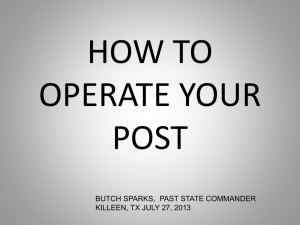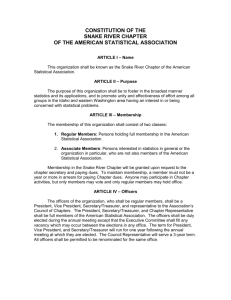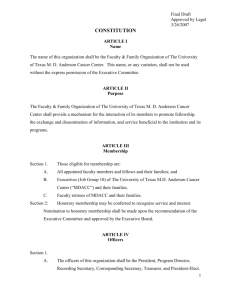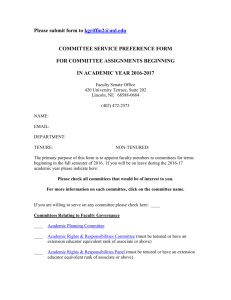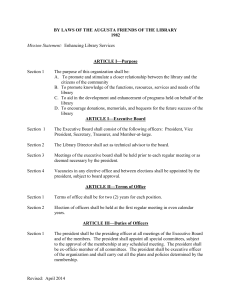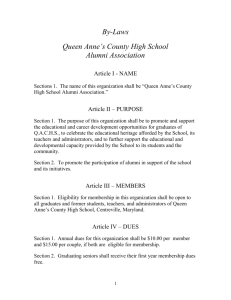BUILDING CHAPTER LEADERSHIP CAPACITY
advertisement
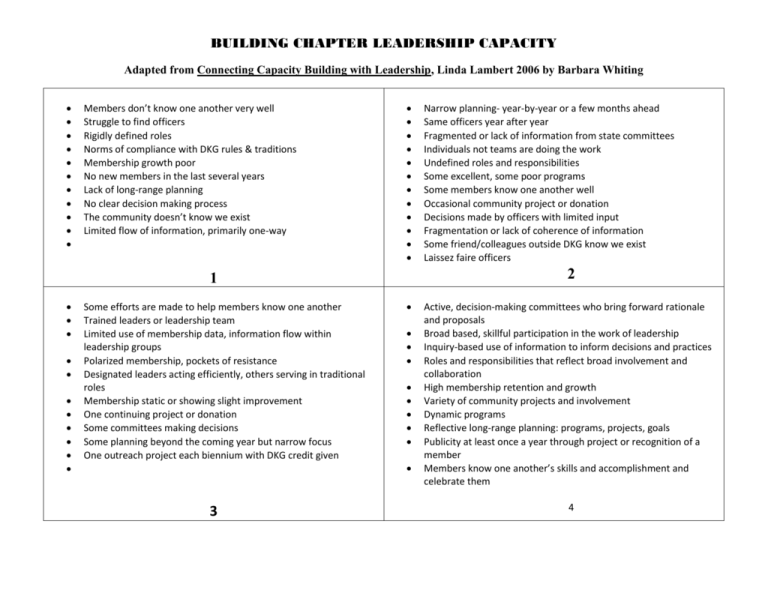
BUILDING CHAPTER LEADERSHIP CAPACITY Adapted from Connecting Capacity Building with Leadership, Linda Lambert 2006 by Barbara Whiting Members don’t know one another very well Struggle to find officers Rigidly defined roles Norms of compliance with DKG rules & traditions Membership growth poor No new members in the last several years Lack of long-range planning No clear decision making process The community doesn’t know we exist Limited flow of information, primarily one-way 2 1 Some efforts are made to help members know one another Trained leaders or leadership team Limited use of membership data, information flow within leadership groups Polarized membership, pockets of resistance Designated leaders acting efficiently, others serving in traditional roles Membership static or showing slight improvement One continuing project or donation Some committees making decisions Some planning beyond the coming year but narrow focus One outreach project each biennium with DKG credit given 3 Narrow planning- year-by-year or a few months ahead Same officers year after year Fragmented or lack of information from state committees Individuals not teams are doing the work Undefined roles and responsibilities Some excellent, some poor programs Some members know one another well Occasional community project or donation Decisions made by officers with limited input Fragmentation or lack of coherence of information Some friend/colleagues outside DKG know we exist Laissez faire officers Active, decision-making committees who bring forward rationale and proposals Broad based, skillful participation in the work of leadership Inquiry-based use of information to inform decisions and practices Roles and responsibilities that reflect broad involvement and collaboration High membership retention and growth Variety of community projects and involvement Dynamic programs Reflective long-range planning: programs, projects, goals Publicity at least once a year through project or recognition of a member Members know one another’s skills and accomplishment and celebrate them 4 STRATEGIES FOR BUILDING CHAPTER LEADERSHIP CAPACITY GOAL: DEVELOPING RECIPROCAL RELATIONSHIPS Incorporating opportunities to get to know one another through networking and projects together Establishing collaborative norms Solving problems Having discussions with broad participation Welcoming atmosphere GOAL: MOVING TO COLLABORATION Involving everyone in chapter-wide conversations Using dialogue, not monologue, consistently Using conflict resolution skills Encourage active committees Expand outlook for where to find members Actively seeking members from new categories of education Create opportunities to build on members’ strengths GOAL: CREATING A SHARED PURPOSE Know each other well enough to find shared values Engaging in chapter-wide collaborative projects Running effective meetings Helping members understand their link with state and international Involving members in planning and decision-making GOAL: SUSTAINABILITY Revisiting the shared vision of the chapter regularly Creating multiple means of participation Attending to succession planning Actively recruiting members from all possible educational categories Community visibility Meaningful projects that support a community need Members fell involved in decision-making and support the goals of the chapter Celebrations Publicity



